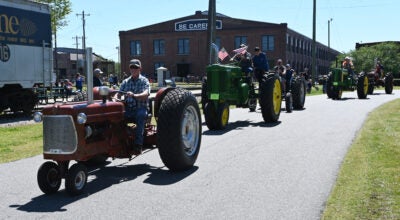New rules going into effect for industrial, commercial boilers, water heaters
Published 12:00 am Wednesday, September 14, 2011
By Kathy Chaffin
Center for the Environment
Churches, businesses and schools are among 19 facilities in Rowan and Cabarrus counties that may be subject to new federal air quality requirements for hazardous pollutants from boilers that burn coal, oil, wood and other biomass fuels.
Owners or operators of the industrial, commercial and institutional facilities ó unless they have updated their boilers or water heaters ó have until Sept. 17 to notify the N.C. Division of Air Quality that they are subject to the new rules passed by the U.S. Environmental Protection Agency (EPA) in March. These owners/operators were sent informational letters and postcards notifying them that they may be required to comply with the new rules.
After returning initial notification forms to the N.C. Division of Air Quality, facilities subject to the rules face varying requirements depending on their size, fuel type and date of construction. Smaller facilities with boilers or water heaters burning coal, oil, wood and other biomass fuels will be required get a regular tune-up by March 21, 2012, according to Richard Lasater, engineer for the N.C. Division of Air Quality. ěWeíre not talking a huge amount of money,î Lasater says. ěIt just amounts to a service call.î
After the initial tune-up, they will be required to get follow-up tune-ups every two years. ěEPAís just making sure if youíve got a boiler, you donít let it get full of soot or something like that and smoke up the environment,î he says.
According to the rules, larger facilities may need control devices to limit their emissions of mercury, carbon monoxide and particle pollution.
Lasater says there are currently 25,000 boilers in North Carolina, 1,749 of which may be subject to the new rules.
Among the Rowan facilities listed with the N.C. Department of Labor Boiler Safety Bureau as still having boilers or large water heaters that burn coal, oil, wood and other biomass fuels are a Laundromat, five schools, two churches and a meat processing company. In Cabarrus County, six schools and four churches are listed.
Any of those facilities that have updated their boilers or large water heaters are likely not affected by the new rules. The EPA rules define water heaters as being less than 120 gallons, he says, ěsuch as youíd find in a home.î
According to the new rules, anything larger is considered to be a boiler and has to comply.
Links to the rules, notification forms and other information can be found on the N.C. Department of Environment and Natural Resourcesí Division of Air Quality website.




